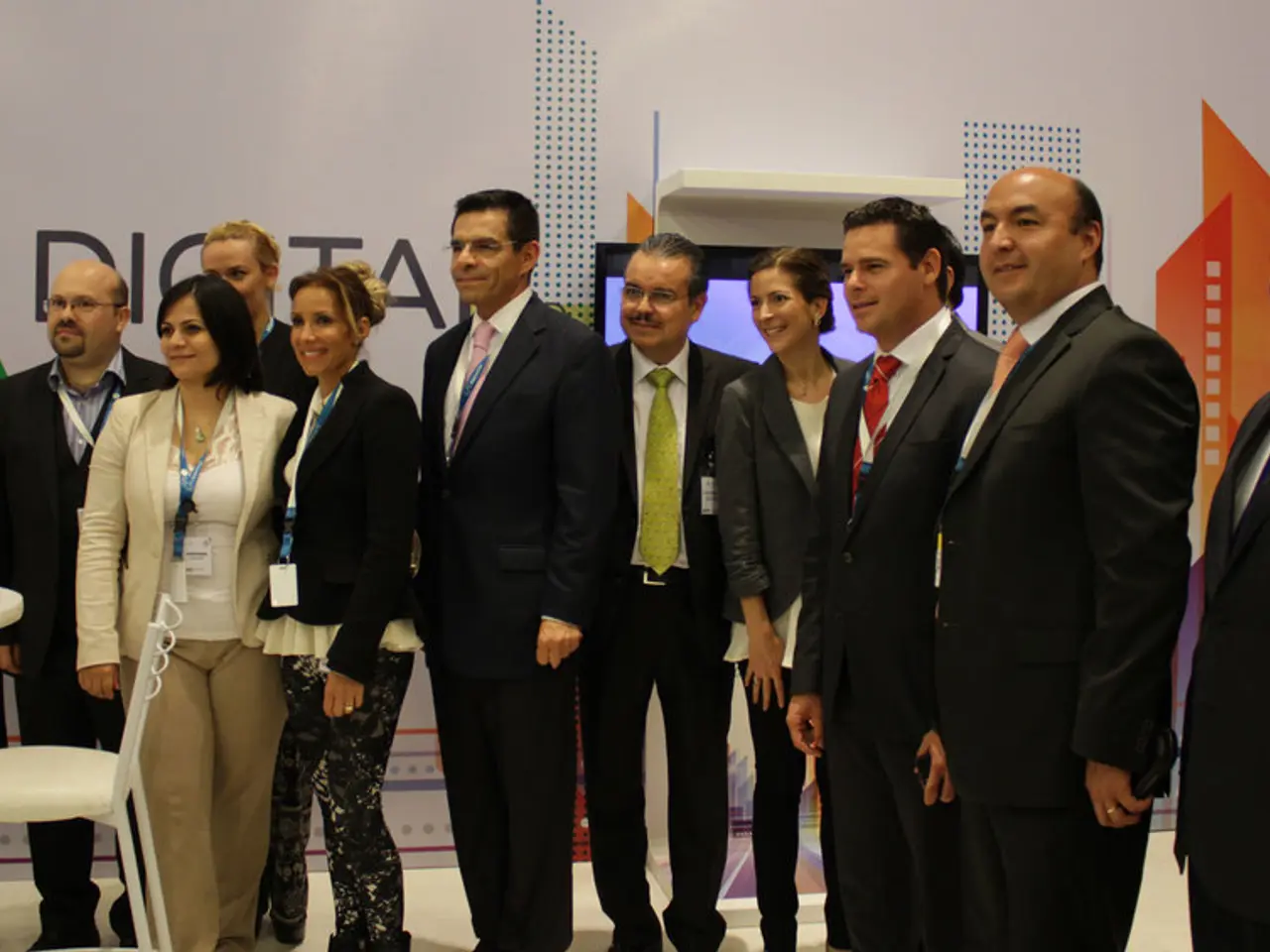Digital vision proposed by experts aimed at creating a digitally equitable Pakistan
In a groundbreaking event held in Islamabad, leaders from Pakistan's telecom and technology sectors gathered to present a vision for a digitally inclusive Pakistan. The GSMA Digital Nation Summit brought together industry heavyweights, including Aamir Ibrahim, CEO of Jazz and Chairman of Mobilink Micro finance Bank, Khurram Ashfaque, CEO of Telenor Pakistan, and Sajjad Syed, Chairman of PASHA.
The panel discussion revolved around the role of telecom as a cross-sector enabler and the need for policy reforms to achieve universal internet access and digital inclusion. Aamir Ibrahim emphasized the importance of affordable and accessible connectivity for the progress of the digital economy, particularly for rural areas and marginalized communities. He stated, "Affordable and accessible connectivity is crucial for the progress of the digital economy."
Kazim Mujtaba, President of the Consumer Division at Jazz, highlighted the smartphone as the gateway to participation in the digital economy, particularly for women and underserved communities. He detailed community initiatives targeting women in rural areas to build skills and confidence in using mobile technology. Giving women digital access, according to Mujtaba, can have a transformative impact on families and communities.
The vision includes universal internet access and affordable smartphones. Mujtaba also emphasized smartphone affordability and digital literacy as essential for digital progress. He considered connectivity a necessity, not a luxury, and the smartphone the key to participation in the digital economy.
The leaders also addressed key policy reforms and regulatory policies required for universal internet access and digital inclusion in Pakistan's telecom sector. These include reforms in spectrum allocation, affordable smartphones and devices initiatives, mandating digital payment acceptance at retail level, improving infrastructure investment incentives, policies to bridge the digital divide across gender and geography, establishing a centralized digital policy framework, building trust and consumer protection frameworks, and long-term planning for the sector.
Panelists stressed that reforms in spectrum pricing, a more investment-friendly environment, and long-term planning are essential for unlocking the full potential of Pakistan's telecom sector. Aamir Ibrahim stated that the real competition in the digital transformation is against cash, not payment service providers. He also highlighted that Apna Clinic, an AI-powered health-tech platform, will provide teleconsultations, diagnostic services, and surgery bookings through a network of 30,000 doctors across 150 cities.
In addition, Fikr Free, an insurtech application, aims to reduce Pakistan's substantial insurance gap among women and low-income groups by offering affordable and easily accessible coverage. The future, according to the CEO of Jazz, belongs to those who build ecosystems, not just networks.
The GSMA Digital Nation Summit marked a significant step towards a digitally inclusive Pakistan, where internet connectivity is recognized as a right, not a privilege, enabling the country to leapfrog into a connected, inclusive digital society that supports innovation, economic growth, and social equity.
- The need for policy reforms to address spectrum allocation, affordable smartphones and devices, digital payment acceptance at retail level, infrastructure investment incentives, and bridging the digital divide across gender and geography was emphasized to achieve universal internet access and digital inclusion.
- Affordable and easily accessible insurance coverage becomes possible with Fikr Free, an insurtech application, which aims to reduce the substantial insurance gap among women and low-income groups in Pakistan.
- Aamir Ibrahim, the CEO of Jazz, highlighted Apna Clinic, an AI-powered health-tech platform, as a key component of the digital transformation, offering teleconsultations, diagnostic services, and surgery bookings through a network of 30,000 doctors across 150 cities.




